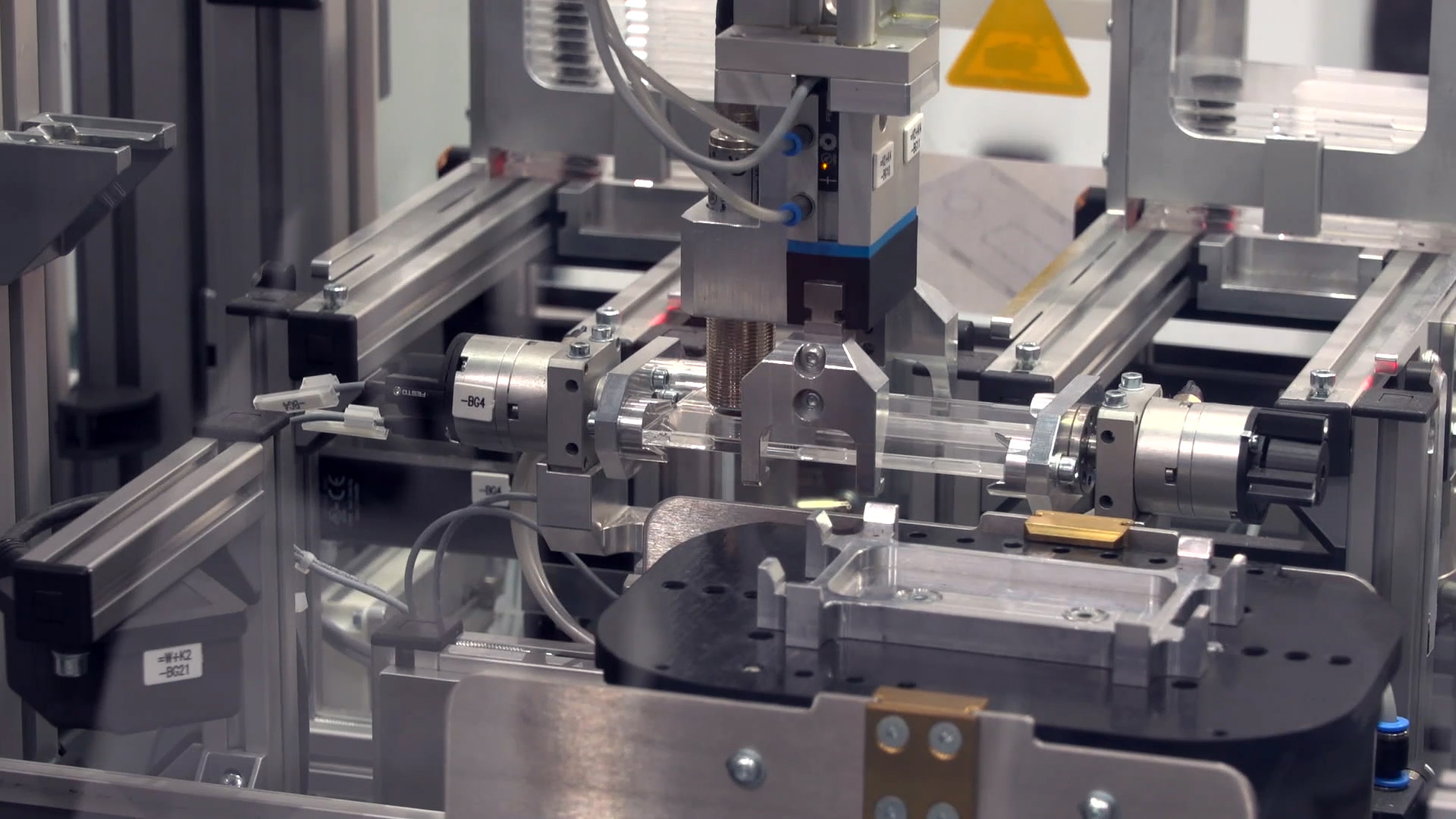HANNOVER MESSE is one of the world's most important industrial trade fairs. Every spring, the who's who of global industry gathers here to present the latest technologies, developments, and business models – from automation and digitalization to energy technology, mechanical engineering, robotics, and the hydrogen economy. Since its inception, the trade fair has developed into one of the most important platforms for innovation in the industrial sector. It is organized by Deutsche Messe AG, which has a strong international presence and welcomes around 6,500 exhibitors from more than 70 countries every year.

What makes HANNOVER MESSE so special is its consistently interdisciplinary approach: This is where traditional industrial companies, tech corporations, start-ups, research institutions, energy suppliers, and political decision-makers come together. They discuss the future of production, energy supply, and value chains—and at the same time demonstrate how new technologies can be put into practice.
A central theme that has shaped HANNOVER MESSE for years is the transition to an intelligent, networked industry. What was initially discussed in theory as “Industry 4.0” is now an integral part of many production processes: sensor technology, machine communication, AI-based manufacturing, digital twins, and predictive maintenance are no longer a vision, but increasingly the standard. Anyone interested in other trade fairs related to technology, energy, and industry in Lower Saxony will find a structured overview of related events at Hanover Trade Fair, including EMO, EUROBLECH, and DOMOTEX. The trade fair consistently pursues its goal of not only showcasing technology, but also making transformation tangible. Entire production lines are set up, modular production systems are demonstrated in real operation, and robots interact live with visitors. HANNOVER MESSE sees itself as a place where complex topics are made tangible.
In recent years, the focus has broadened significantly. Energy efficiency, CO₂ neutrality, sector coupling, and the digitization of energy networks are becoming increasingly important. Companies present concepts for industrial decarbonization, showcase solutions for energy management in factories, and demonstrate the integration of renewable sources into industrial processes. The hydrogen sector is particularly dynamic: HANNOVER MESSE regularly showcases numerous national and international projects that are driving forward the industrial use of green hydrogen. The trade fair plays an important role here as a driver of the energy transition in industry – through exchange, knowledge transfer, and international cooperation.
With visitors and exhibitors from over 70 countries, HANNOVER MESSE is a global event with local roots. Each year, a partner country takes center stage – most recently Indonesia, Portugal, Sweden, and South Korea. This focus enables deeper bilateral relationships, trade talks, and industry-specific networking at the government level. In addition, the trade fair serves as a strategic showcase for economic and innovation policy goals. German chancellors, ministers, and business delegations traditionally use HANNOVER MESSE as a platform to present industrial policy agendas or launch innovation programs.
The trade fair attaches great importance to promoting start-ups, students, and scientific institutions. In areas such as “Young Tech Enterprises” and “Research & Technology,” young companies and universities are given space to present their ideas—from intelligent sensors and new materials to platform solutions for smart production. Career formats, speed dating, lab tours, and guided tours also offer practical orientation for young professionals. In this way, HANNOVER MESSE combines entrepreneurial innovation with education and youth development at the highest level.
Whether large global corporations or specialized medium-sized companies, the diversity of exhibitors shows that industry today is undergoing change not only technologically but also structurally. HANNOVER MESSE not only reflects this change, but also actively shapes it through its choice of topics, curated forums, political debates, and concrete implementation partnerships. What sets the trade fair apart is its realistic view of market requirements. It does not promote utopian ideas, but instead showcases functioning solutions, areas for improvement, and opportunities for further development. Its particular strength lies in this combination of vision and practicality.
Further information can be found on the organizer's website: www.hannovermesse.de